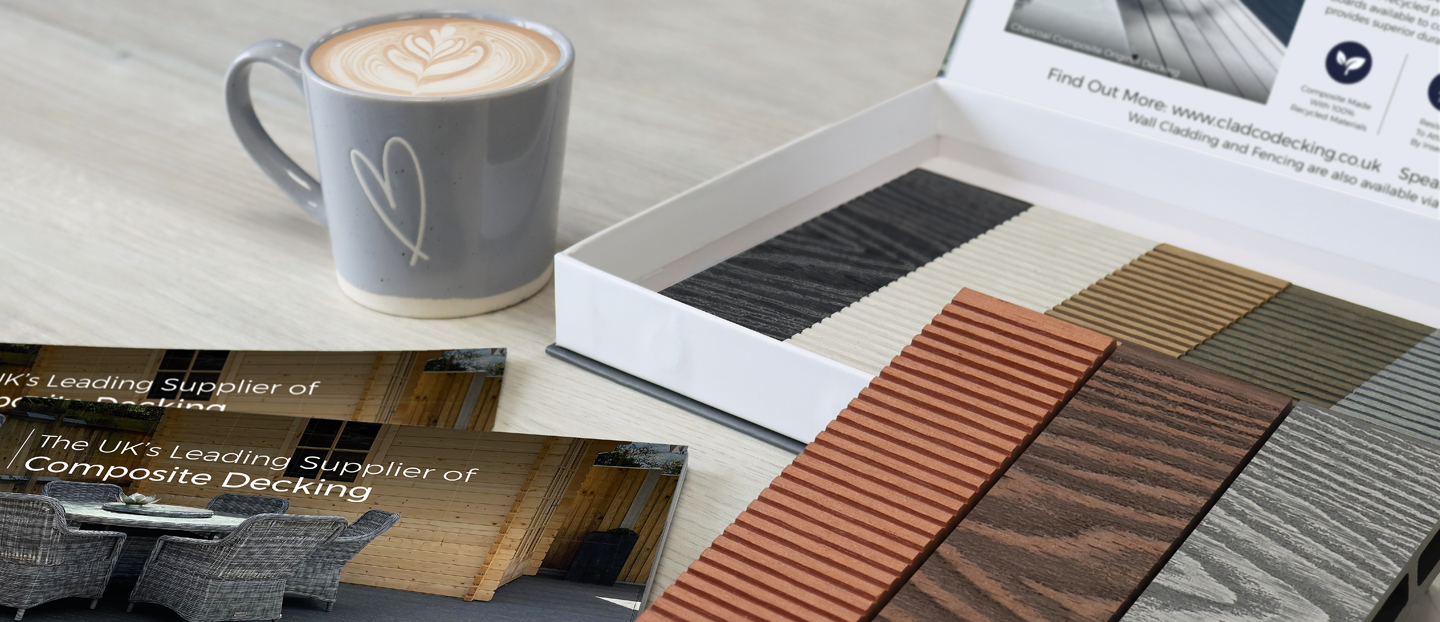When it comes to installing decking on a balcony or a high-rise building, there are several important factors to consider before getting started. From health and safety to structural integrity, the choice of material is crucial. With so many options available, it can be challenging to know where to begin.
Whether you're updating an existing balcony or building a new one from scratch, selecting the right decking material is essential. With so many options to choose from, including timber, composite, metal, and PVC, it's important to consider health and safety regulations when deciding which decking material will best suit your space.
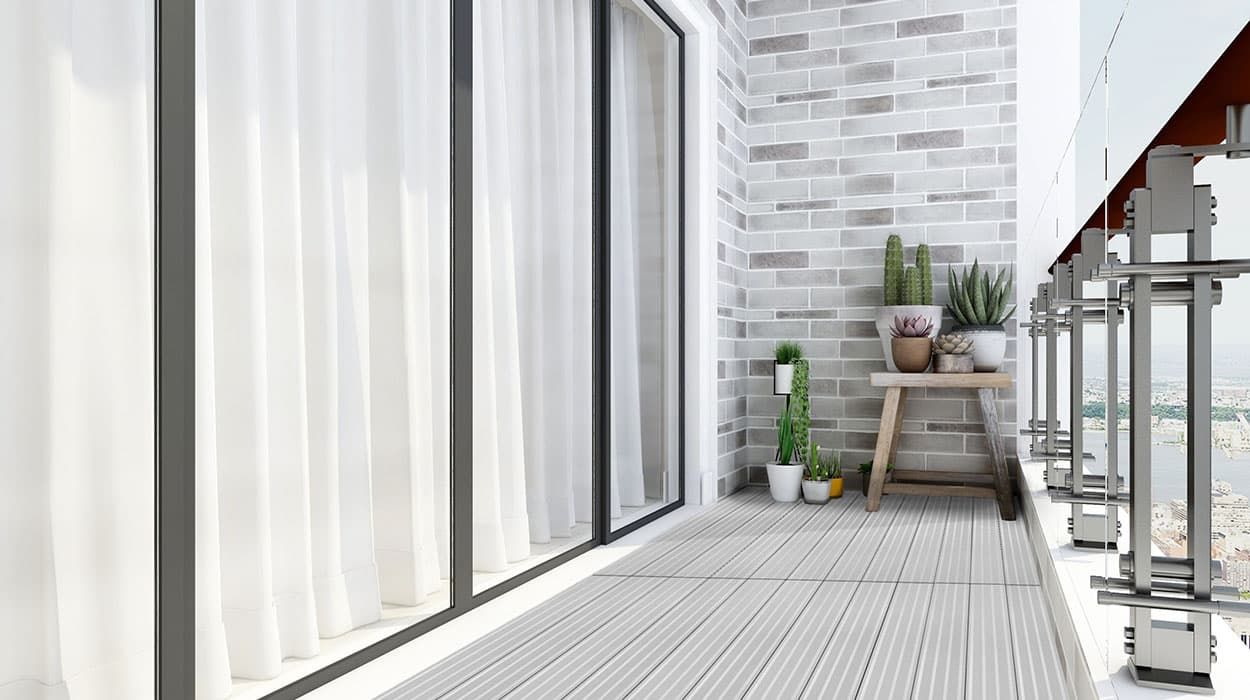
Non-combustible balcony decking and the options for high-rise buildings
According to the new British Standard for the design of balconies and terraces (BS8579), non-combustible materials are recommended for decking outside spaces at height, such as balconies and roof terraces.
The general view held by industry experts is that any existing combustible materials used in balcony construction should be removed and replaced for the optimum welfare of the residents. This is the most successful way to prevent fires from starting and any external fire from spreading further.
If combustible materials are used for balcony decking, it must be clearly communicated to the owner or residents. The UK fire and rescue services, such as the Greater Manchester Fire and Rescue Service, advise that flammable products, from barbecues to cigarettes, should not be present on balconies, irrespective of the height of the building. This recommendation applies regardless of the building’s height, as many high-rise fires start from the unsafe disposal of these items. This article from the London Fire Brigade explains how “between April 2017 to May 2019, there have been an average of 15 balcony fires per month in London.”
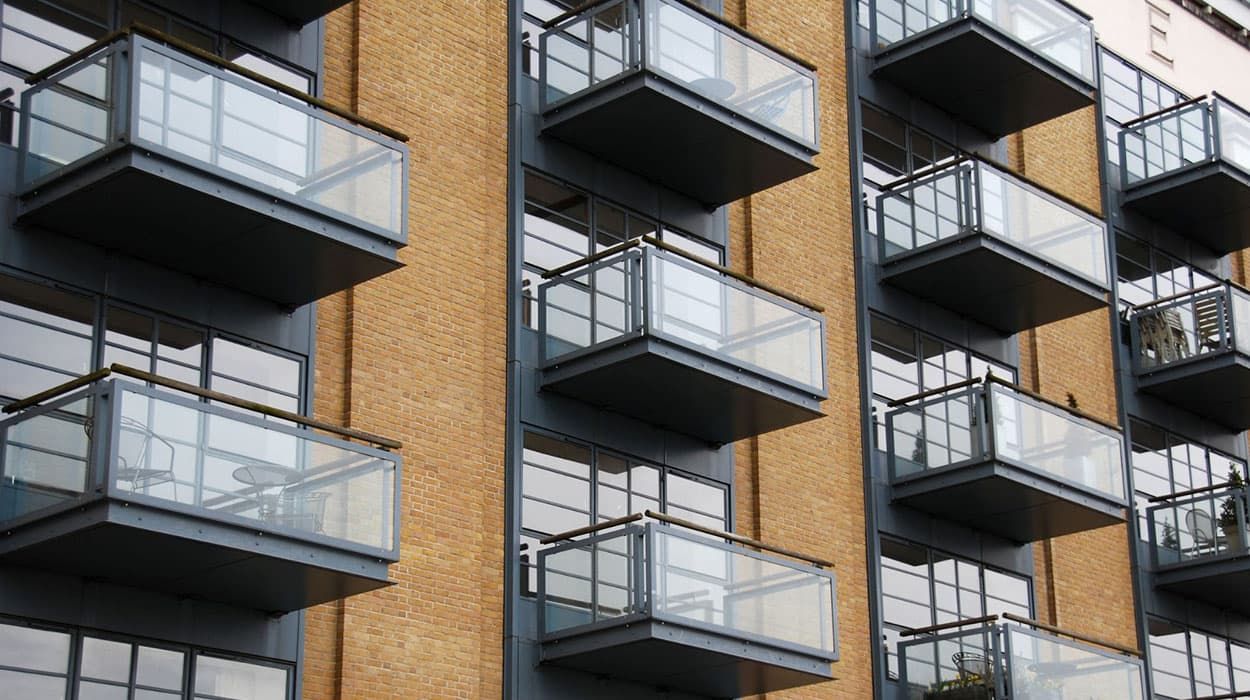
Where there is any doubt over the materials used in these spaces, owners should seek professional advice from an appropriately competent and qualified professional, such as a fire engineer.
While the guidance from BS8579 is not mandatory, it is highly recommended that any materials used on high-rise buildings and balconies come with an official fire rating of at least A1 or A2. A1 materials are completely non-combustible, while A2 materials have very limited combustibility.
Aluminium decking
Aluminium decking is an ideal choice for new build terraces, balconies, and refurbishment projects, especially when existing balcony flooring needs replacing to comply with updated residential fire regulations. Known for its high safety standards, aluminium decking is the top recommended product on the market, as it meets the strict BS EN 13501 fire safety regulations.
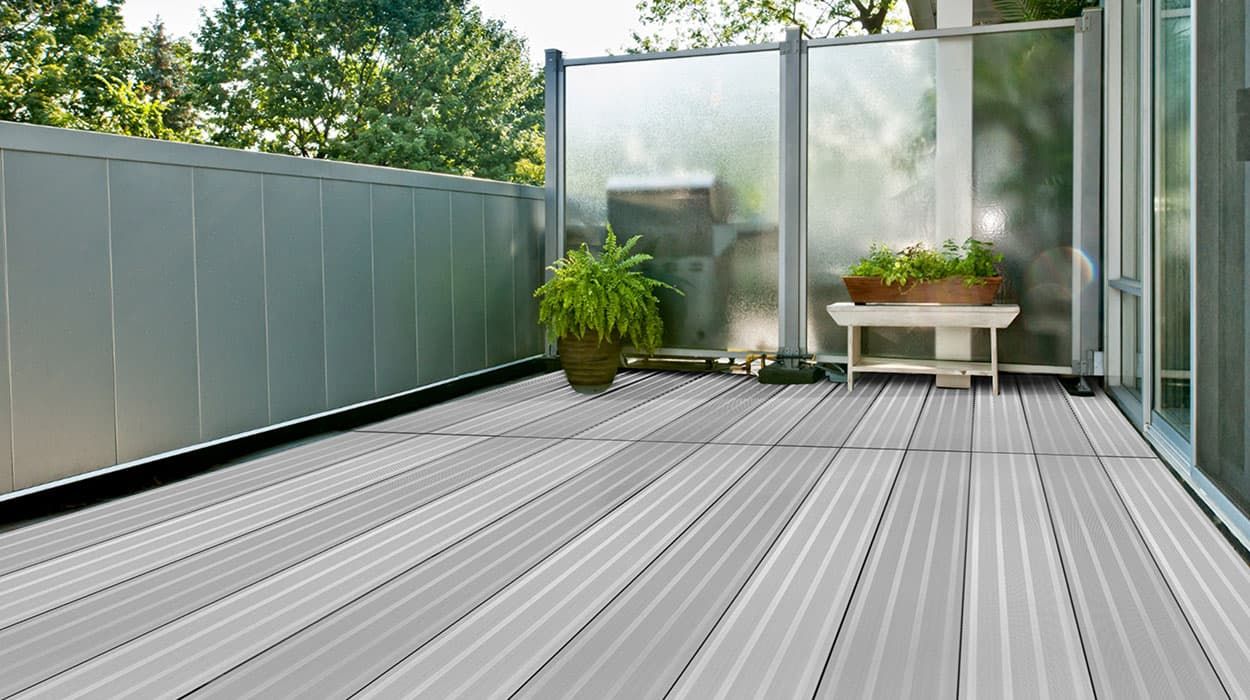
The non-flammable, durable products used to manufacture Cladco aluminium decking makes for the perfect system for use on balconies, high-rise terraces or any other floor area that has to comply with British standard building regulations, thanks to their A2-S1 fire rating, which means they have limited combustibility and produce only a very limited amount of smoke.
-
Cladco's aluminium decking boards offer excellent slip resistance when installed perpendicular to doorways and walkways, thanks to their finely grooved surface for added safety. The decking also features a built-in drainage system to ensure optimal water runoff, while its metallic structure guarantees resistance to rot and infestation. Lightweight yet durable, the system is easy to install, making it an ideal choice for balcony installations at height.
-
The main drawback of aluminium decking is the higher upfront cost, as the materials are more expensive than most other options. However, its exceptional durability, strength, and resilience make it a smart long-term investment, helping buildings stay compliant with regulations while offering a solution that’s built to last.
Fibre cement boards used as balcony decking
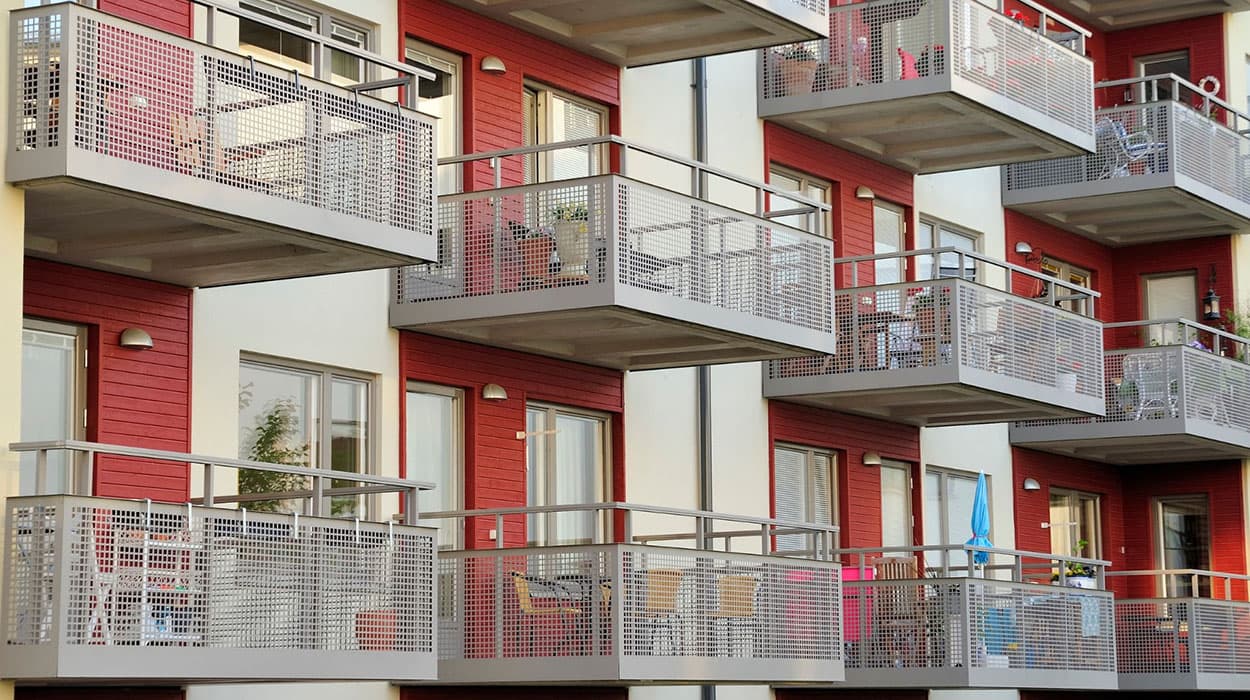
Fibre cement decking is a non-combustible solution, with high-quality boards typically achieving an A2 fire rating. This makes them an ideal choice for balconies and high-rise buildings over 11m tall, where strict fire safety standards apply.
They’re manufactured from a cement-based composition combined with cellulose fibres, water, and chemical additives, enhancing both the strength and long-term durability of the product.
-
One of the many benefits of fibre cement decking is that it is lightweight and easy to install, making it a safe and suitable choice that complies with EN 13501 regulations when fitted on balconies. They are 100% asbestos-free and do not contain any chemicals that may be harmful to human health.
-
The downside of fibre cement decking boards is that they lack the aesthetic appeal that you would gain from a traditional timber or composite deck. Fibre cement decking is also prone to poor water drainage.
Porcelain floor tiles
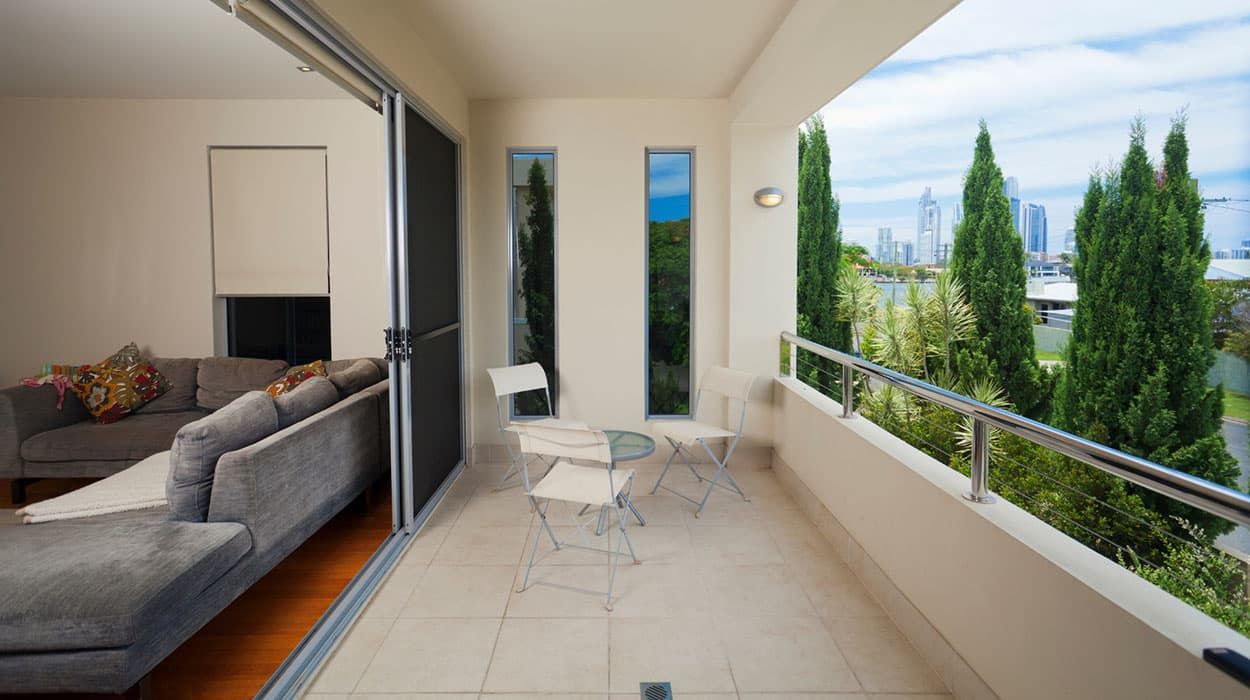
If you're aiming to recreate the look of balcony decking seen in warmer climates or luxury holiday resorts, porcelain floor tiles can deliver that stylish finish. However, in the UK, their use on exposed balconies or direct installation onto concrete foundations is not recommended. Despite their appearance, porcelain tiles are not fully waterproof, which can lead to structural damage beneath the surface. In colder, wetter climates like the UK, tiles are prone to lifting and buckling over time, making them a less cost-effective choice due to the potential for frequent repairs and ongoing maintenance.
-
Porcelain or stone tiles can be a more affordable option for decking a patio or low-level balcony, making them a popular choice for homeowners looking to refresh their outdoor living space on a budget.
-
However, in addition to poor weather resistance in wet conditions, the weight of porcelain tiles can significantly impact a balcony’s load-bearing capacity. Before installation on low-level or mid-rise terraces, it’s essential to have a professional structural engineer assess the structure to ensure it can safely support the tiles.
Composite decking (WPC)
Durable, environmentally friendly and available in a wide range of colours, wood plastic composite boards (WPC) mean you don't have to waste time painting, varnishing, sealing and repairing your decking year in and year out.
Whilst composite decking works great as a decking material for ground floor gardens and verandas, the hardwood fibre and plastic composition of WPC means they are not compliant with the necessary A1 or A2 fire rating required for new balcony decking installations.
Best suited for ground-level projects, Cladco Signature composite decking boards are available in either 2.4m or 4m lengths and in either solid or hollow structures, depending on their end use. Our polymer-capped composite decking board, ProDeck, meanwhile, features a polymer-capped layer for added mould and stain resistance and zero water absorption. Cladco ProDeck composite decking boards are available in 2.4m and 4m lengths. Cladco also has a range of matching trims and fixings available for a seamless finish to your decking project.
Cladco wood-plastic composite boards offer reliable performance and peace of mind. Our Signature composite decking range comes with a 15-year warranty, while ProDeck boards include a 15-year Commercial Warranty and a 20-year Residential Warranty when installed onto recycled plastic joists. Installation is easy, and thanks to the reversible boards featuring a narrow, grooved surface, they provide a low-slip finish. Made from FSC-certified wood fibres and recycled plastic, these boards are a more durable, rot-, mould-, and splinter-resistant alternative to traditional timber decking.
One of the biggest negatives when it comes to wood-plastic composite decking is that it can be a less cost-effective option compared with real timber. With lots of different brands and styles of WPC products on the market, it can also be quite time-consuming to find the right product suitable for your project.
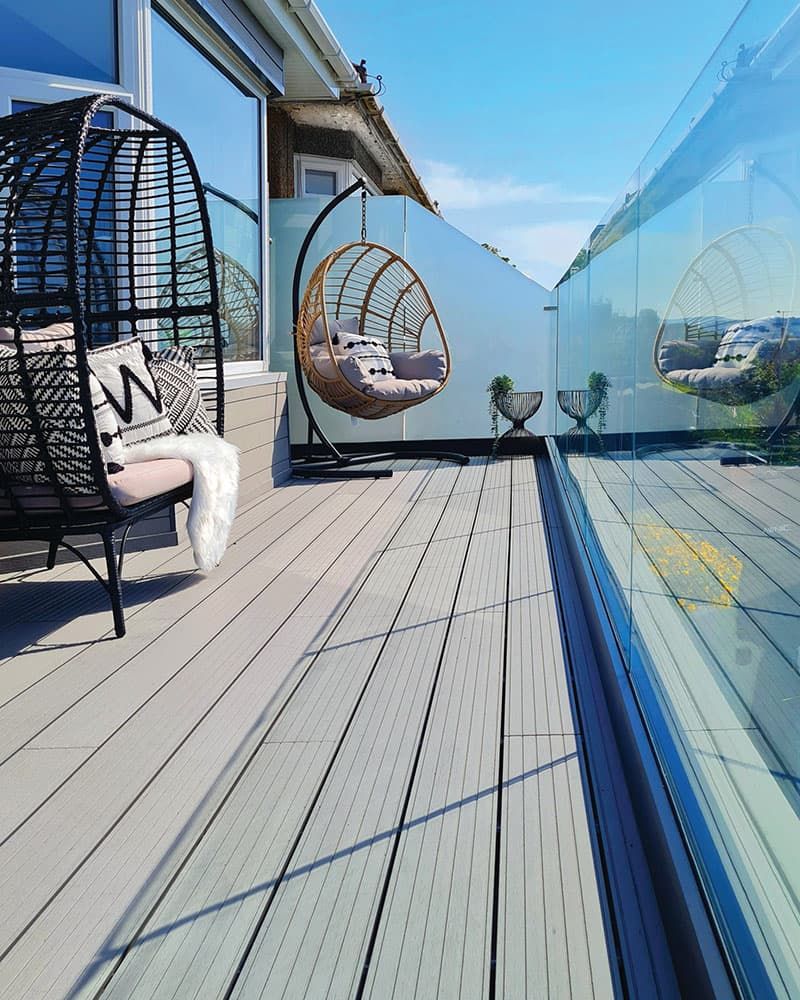
Natural wood decking
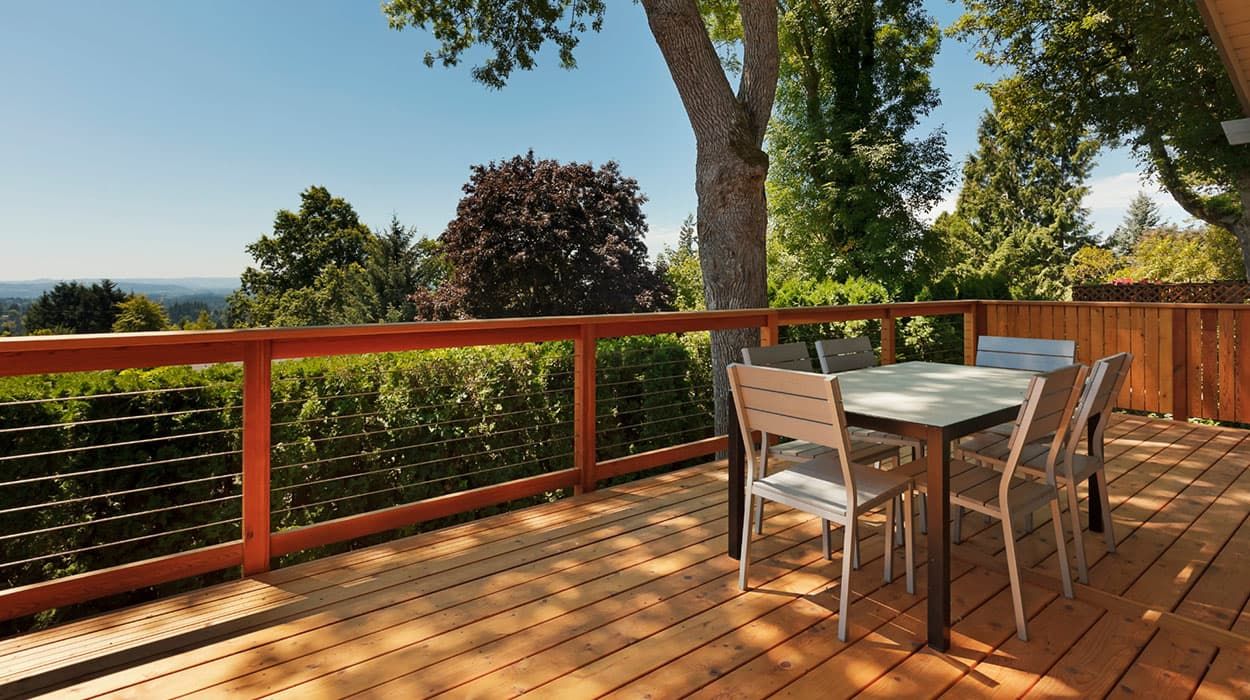
If you're after the most traditional decking solution for your outdoor project, timber decking is a fantastic choice, with most real wood boards made from high-quality timber.
Cladco timber decking boards are 4.8m long and made from softwood spruce, which is one of the most popular types of timber used in decking areas. The boards are green pressure-treated and kiln-dried, increasing durability and providing easy maintenance throughout the year.
Due to the nature of the wooden boards, this type of material is NOT suitable for high-rise installations on balconies or rooftops due to their highly flammable properties. They are, however, an excellent solution when installed in ground-level domestic gardens and can be stained, treated or painted in a range of colours to suit your desired real-wood aesthetic.
-
The use of softwood spruce makes timber decking easier to install, drill and saw, saving time on fitting. We recommend installing our timber boards on top of a solid, structural base using timber joists and timber posts to ensure stability.
-
Whilst there is no doubt that timber decking looks conventional and aesthetically attractive, it can be prone to splintering/rotting, and can become mouldy in wet and rainy climates, with poor slip resistance, making it hazardous underfoot.
PVC decking
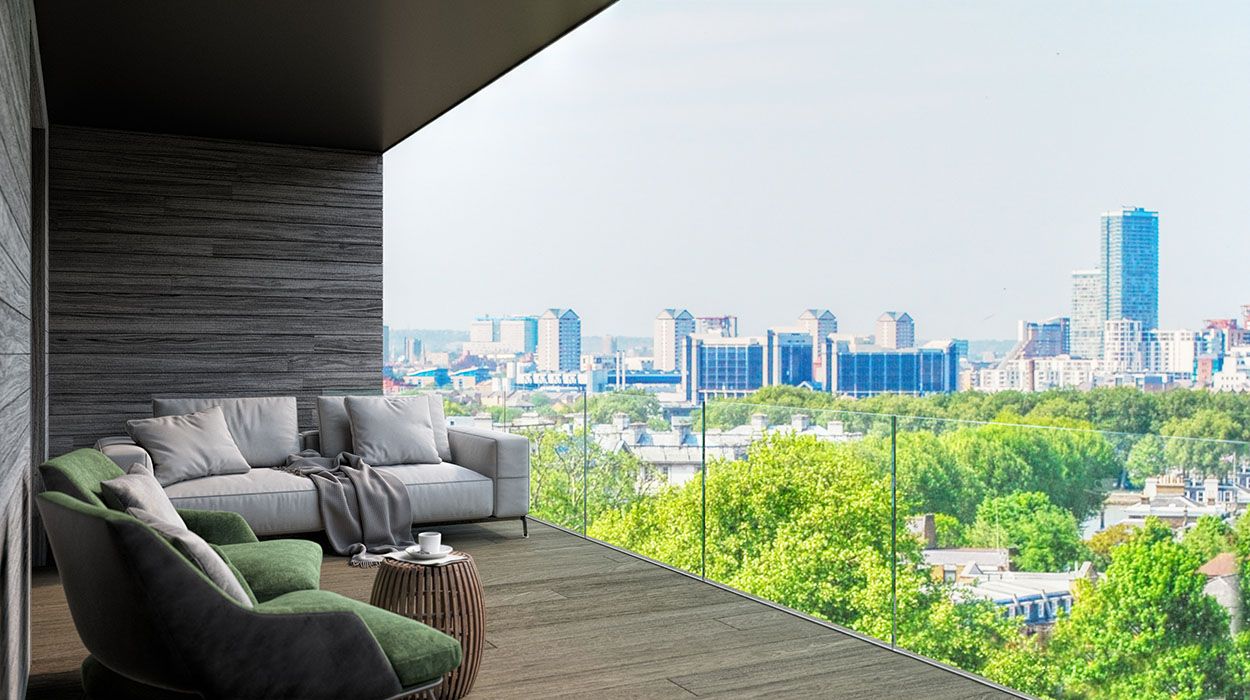
PVC decking is a high-end, premium decking product that is perfect for those wanting to achieve the look of a traditional timber deck, without the hassle of ongoing maintenance, thanks to its authentic woodgrain effect exterior and strong resin coating. PVC decking is manufactured to achieve a high-strength board with slip-resistant properties.
Cladco’s Nordeck woodgrain effect decking is made from a durable synthetic structure that is manufactured to be either flexible or rigid. When paired with ASA resin coating, it creates one of the most high-performance decking products available on the decking market.
Although PVC does not contain any real-wood fibres like composite decking, they do still contain potentially flammable materials and is not considered to be an A1 or A2 fire-rated decking product. It is, therefore, not recommended to be fitted on balconies above 11m from the ground and is best suited to garden and low-level patio applications.
-
Cladco’s Nordeck woodgrain effect decking boards come with a 20-year warranty and have superior UV, rot, mould and splinter-resistant benefits in comparison to real wood or composite decking materials. They are available in a range of seven natural colours and give an authentic look to any decking project.
-
PVC is not an environmentally friendly material and cannot be recycled; therefore, in the current climate, whereby eco-conscious products are more desirable and sustainable, these characteristics can be deemed as a negative. This type of product is not suitable for use as balcony decking.
Composite decking tiles
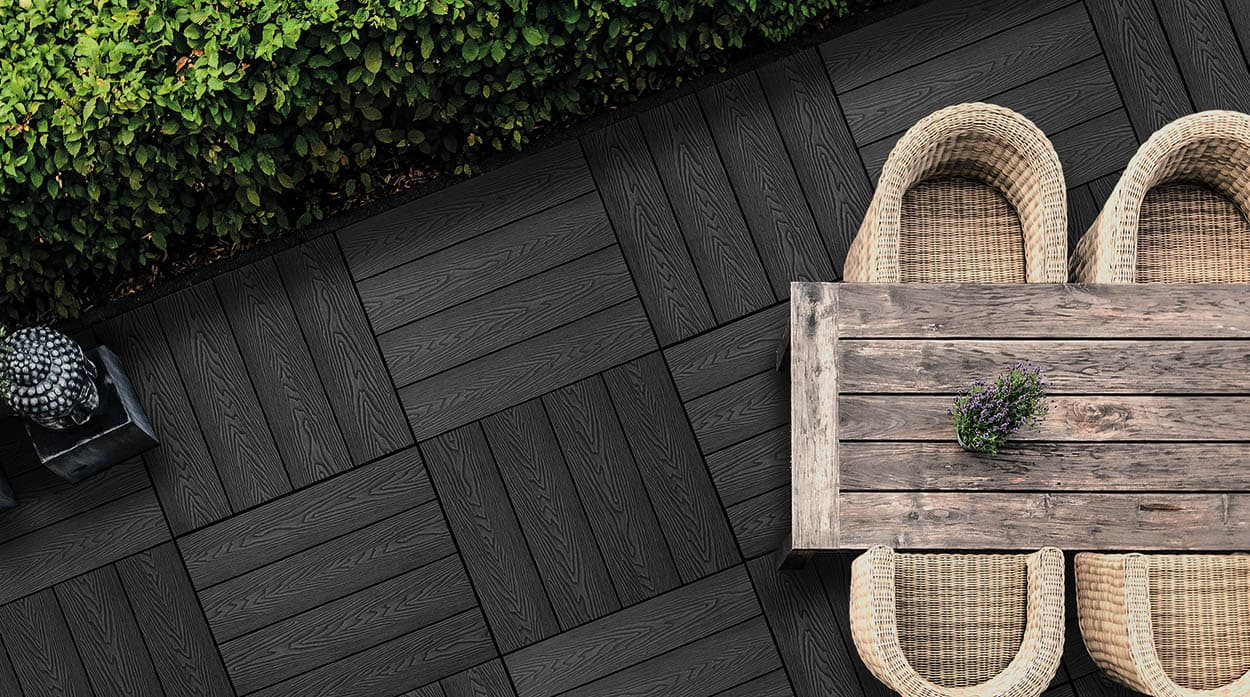
Composite deck tiles are the easiest way to transform a garden or outdoor space that requires an instant, low-maintenance flooring upgrade. Composite decking tiles can be combined with artificial grass tiles or used independently to transform low-level balconies, terraces, verandas, patios, and many other areas that require a new look.
This type of decking tile is ideal for a quick, attractive upgrade to your outside living area. Due to their wood/plastic composition, though, they are not suitable for installations on any outside space about 11m from the ground.
- Composite decking tiles are a quick and straightforward solution available in various decorative woodgrain effect finishes and colours.
- The cons of composite decking tiles on a low-rise balcony or terraced space are that the tiles cannot be cut to size, making it quite difficult to cover a space that is not perfectly square or rectangular. They're also less hardwearing than professionally fitted decking boards, however, they are a convenient, cost-effective option for smaller spaces.
Summary
For balcony decking installations over 11m from ground level, according to the British Standard for the design of balconies and terraces (BS8579), non-combustible materials are recommended for decking outside spaces at heights such as balconies and roof terraces. In this instance, aluminium or fibre cement decking options are the most suitable, due to their A1 or A2 fire safety rating.
If you are looking for the best option for low-level balconies or terraces that sit below an 11m height, composite decking boards, including our Signature and ProDeck ranges, composite decking tiles or PVC decking boards, such as our Nordeck range, will give a traditional real-wood look with low-maintenance and easy-to-install properties, whilst natural timber decking is a cheaper choice.
Porcelain tiles work well when used in drier climates and holiday accommodations, but due to their weight, in the UK they are best suited to balcony decking at ground levels or very low heights.
All of these options can, of course, also be applied to standard decking areas in a domestic garden, and each comes with its own pros and cons depending on your needs.
Get in touch:
For more information and guidance on Cladco decking options, visit us online at www.cladco.co.uk or give our friendly Sales Team a call on 01837 659901.
Last Updated: September 18, 2025
Please note all information is correct at the time of writing. However, we encourage you to do your own research to ensure it remains accurate and relevant to your needs.





